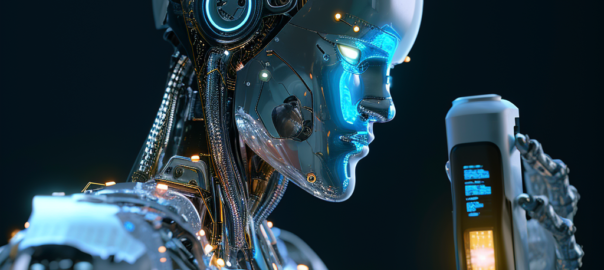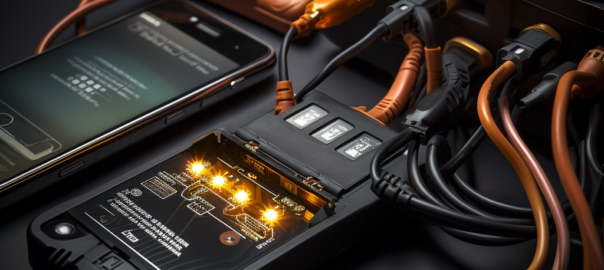The automotive industry is undergoing a significant transformation as it shifts towards electric vehicles (EVs). This change is driven by the need to reduce greenhouse gas emissions, improve air quality, and decrease dependence on fossil fuels. As a result, carmakers are investing heavily in the development and production of EVs, with many setting ambitious targets for electrification in the coming years.
One of the most critical components of an electric vehicle is its battery. The battery determines the range, performance, and overall cost of the vehicle. As such, the relationship between battery manufacturers and carmakers is crucial to the success of the EV industry. In this article, we will explore which battery companies are supplying which carmakers and the factors that influence these partnerships.
The global EV battery market is highly competitive, with several major players vying for contracts with leading automakers. Some of the most prominent battery manufacturers include CATL, LG Chem, Panasonic, Samsung SDI, SK Innovation, and BYD. Each of these companies has established partnerships with various carmakers, securing their position in the growing EV market.
The selection of a battery supplier is a complex process that involves multiple factors, such as battery technology, performance, production capacity, cost, and geographic location. Carmakers must carefully evaluate these factors to ensure that they have a reliable and cost-effective supply of batteries for their EVs.
As the EV industry continues to evolve, the relationships between battery manufacturers and carmakers will become increasingly important. In the following chapters, we will delve deeper into the partnerships between specific battery companies and carmakers, as well as the factors that influence these relationships and the future trends in battery supply for electric vehicles.
Contents
The Rise of Electric Vehicles
The global automotive industry is experiencing a significant shift towards electrification. Governments worldwide are implementing stricter emissions regulations and offering incentives to encourage the adoption of electric vehicles (EVs). Consumers are also becoming increasingly aware of the environmental impact of traditional internal combustion engine (ICE) vehicles and are seeking more sustainable transportation options.
According to the International Energy Agency (IEA), the number of electric cars on the road reached 7.2 million in 2019, representing a 40% increase from the previous year. The IEA predicts that by 2030, there could be up to 245 million electric vehicles in use globally, accounting for about 30% of all vehicle sales.
This rapid growth in EV adoption has led to increased competition among carmakers to develop and produce electric vehicles. Many major automakers, such as Volkswagen, General Motors, and Hyundai, have announced plans to invest billions of dollars in EV development and production over the next decade.
For example, Volkswagen, the world’s largest automaker, has committed to investing €60 billion ($71 billion) in electric mobility and digitalization by 2024. The company aims to produce 1.5 million electric vehicles annually by 2025 and has plans to offer 75 all-electric models by 2029.
Similarly, General Motors has pledged to invest $27 billion in electric and autonomous vehicles by 2025. The American automaker aims to launch 30 new global electric vehicles by the end of 2025, with plans to sell exclusively zero-emission vehicles by 2035.
As carmakers ramp up their EV production, the demand for high-quality, reliable, and cost-effective batteries has skyrocketed. Battery manufacturers are racing to increase their production capacity and form strategic partnerships with automakers to secure their position in the growing EV market.
Battery Manufacturers and their Partnerships
The success of electric vehicles heavily relies on the performance and reliability of their batteries. As a result, carmakers are forming strategic partnerships with battery manufacturers to ensure a stable supply of high-quality batteries for their EVs. In this chapter, we will explore some of the leading battery manufacturers and their partnerships with major carmakers.
3.1 CATL (Contemporary Amperex Technology Co. Limited)
CATL is a Chinese battery manufacturer that has quickly become a dominant player in the EV battery market. The company has formed partnerships with several major carmakers, including Volkswagen, BMW, and Tesla. In 2020, CATL signed a two-year contract to supply batteries to Tesla’s Shanghai Gigafactory, further solidifying its position in the industry.
3.2 LG Chem
LG Chem, a South Korean company, is another major player in the EV battery market. The company has established partnerships with several carmakers, including General Motors, Hyundai, and Volkswagen. In 2020, LG Chem announced plans to invest $4.5 billion in the United States to expand its battery production capacity, aiming to meet the growing demand for EV batteries in the region.
3.3 Panasonic
Panasonic, a Japanese electronics company, has been a long-standing partner of Tesla, supplying batteries for the American carmaker’s electric vehicles. In addition to its partnership with Tesla, Panasonic also collaborates with Toyota to develop and produce EV batteries.
3.4 Samsung SDI
Samsung SDI, another South Korean company, has formed partnerships with several carmakers, including BMW, Jaguar Land Rover, and Volvo. The company has been investing heavily in R&D to improve battery technology and increase production capacity to meet the growing demand for EV batteries.
3.5 SK Innovation
SK Innovation, also based in South Korea, has partnerships with several carmakers, including Hyundai, Kia, and Volkswagen. The company is investing $2.6 billion to build two EV battery plants in the United States, aiming to expand its presence in the American market.
3.6 BYD (Build Your Dreams)
BYD is a Chinese company that manufactures both electric vehicles and batteries. The company has formed partnerships with several carmakers, including Toyota and Daimler, to develop and produce EV batteries. BYD’s vertical integration, combining battery production and EV manufacturing, gives it a unique advantage in the industry.
These partnerships between battery manufacturers and carmakers are crucial for the growth and success of the electric vehicle industry. By collaborating closely, they can ensure a stable supply of high-quality batteries, drive innovation in battery technology, and work towards making EVs more affordable and accessible to consumers.
Factors Influencing Battery Supply Contracts
The partnerships between battery manufacturers and carmakers are influenced by several key factors that determine the success and sustainability of these collaborations. In this chapter, we will explore the main factors that carmakers consider when selecting a battery supplier for their electric vehicles.
4.1 Battery Technology and Performance
One of the most critical factors influencing battery supply contracts is the technology and performance of the batteries. Carmakers seek batteries that offer high energy density, fast charging capabilities, and long life spans to provide their EVs with a competitive edge in the market. Battery manufacturers that can deliver cutting-edge technology and consistently high-quality batteries are more likely to secure contracts with major carmakers.
4.2 Production Capacity and Scalability
As the demand for electric vehicles grows, carmakers need battery suppliers that can scale up their production capacity to meet the increasing needs of the industry. Battery manufacturers must demonstrate their ability to expand their production facilities and maintain a consistent supply of batteries to support the growth plans of their automotive partners.
4.3 Cost and Pricing
The cost of batteries is a significant factor in the overall price of electric vehicles. Carmakers strive to make EVs more affordable to consumers, and as such, they seek battery suppliers that can provide high-quality batteries at competitive prices. Battery manufacturers that can optimize their production processes and reduce costs through economies of scale are more likely to secure long-term contracts with carmakers.
4.4 Geographic Location and Logistics
The geographic location of battery manufacturing facilities and the logistics involved in transporting batteries to vehicle assembly plants also play a crucial role in battery supply contracts. Carmakers prefer to work with battery suppliers that have a global presence and can efficiently deliver batteries to their production facilities worldwide. This helps to reduce transportation costs, minimize supply chain disruptions, and ensure a steady flow of batteries to support EV production.
In addition to these factors, carmakers also consider the financial stability, reputation, and sustainability practices of battery manufacturers when selecting a supplier. As the EV industry continues to evolve, the importance of these factors may shift, and new considerations may emerge.
By understanding the key factors that influence battery supply contracts, carmakers can make informed decisions when partnering with battery manufacturers, ensuring a reliable and cost-effective supply of high-quality batteries for their electric vehicles.
Future Trends in Battery Supply for Electric Vehicles
As the electric vehicle industry continues to grow and evolve, several emerging trends are expected to shape the future of battery supply and the partnerships between battery manufacturers and carmakers. In this chapter, we will explore some of the key trends that are likely to influence the battery supply landscape in the coming years.
Solid-State Batteries: One of the most promising developments in battery technology is the advent of solid-state batteries. These batteries use a solid electrolyte instead of the liquid electrolytes found in traditional lithium-ion batteries, offering the potential for higher energy density, faster charging, and improved safety. Several battery manufacturers and carmakers, such as Toyota and Volkswagen, are investing heavily in the development of solid-state batteries, with the goal of bringing this technology to market within the next decade.
Vertical Integration: Some carmakers are exploring the possibility of vertical integration, which involves developing and producing their own batteries in-house. This approach allows carmakers to have greater control over the battery supply chain, reduce costs, and ensure a consistent supply of batteries for their EVs. Tesla, for example, has been working on developing its own battery cells and has even announced plans to build a “Terafactory” to scale up battery production.
Recycling and Sustainability: As the number of EVs on the road continues to grow, the need for sustainable battery production and recycling becomes increasingly important. Battery manufacturers and carmakers are investing in the development of recycling technologies and sustainable production processes to reduce the environmental impact of battery production and disposal. This trend is expected to gain momentum in the coming years, as consumers and governments demand more environmentally friendly practices in the EV industry.
Collaboration and Standardization: To drive innovation and reduce costs, battery manufacturers and carmakers are likely to engage in more collaborative partnerships and work towards standardizing battery technology. This could involve the development of common battery cell formats, modular battery packs, and standardized charging infrastructure. By working together and adopting standardized solutions, the industry can accelerate the adoption of EVs and make them more affordable for consumers.
Advanced Battery Management Systems: As batteries become more complex and powerful, advanced battery management systems (BMS) will play an increasingly important role in optimizing battery performance, safety, and longevity. Future BMS will likely incorporate artificial intelligence and machine learning algorithms to enable predictive maintenance, real-time monitoring, and adaptive charging strategies, further enhancing the efficiency and reliability of EV batteries.
These future trends in battery supply for electric vehicles demonstrate the dynamic and innovative nature of the industry. As battery manufacturers and carmakers continue to collaborate and invest in new technologies, the EV landscape is poised for significant advancements in the coming years, making electric vehicles more accessible, efficient, and sustainable.










